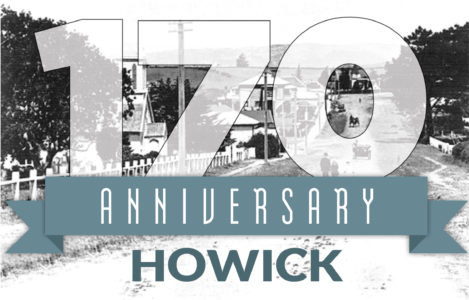
As Howick and districts count down to the 175th anniversary, the Times continues its series by Alan La Roche giving readers a glimpse of life as it used to be. The countdown began at the 170th in 2017
A group of Howick and Pakuranga young men eagerly enrolled when the Government in September 1899 offered to assist Britain in its struggle against descendants of the Dutch colonists, the Boers in the Transvaal/South African Republic and their ally The Orange Free State.
The excitement and patriotism of these men from mainly local farms who took their own horses and equipment, called “Rough Riders” only had two weeks of training, were used to handling guns and quickly trained their horses to accept gunfire.
They included:
- Trooper Vincent Hattaway, son of Captain Robert Hattaway. He was a farmer and joined the 4th Contingent.
- Trooper Corporal John Ireland, a builder in Howick. He joined the 8th Contingent.
- Trooper Nicholas Colin Stichbury, a baker, served in the 5th and 8th Contingents. He was later killed in World War I.
- Trooper Corporal Carl WA Moller, dairy farmer of Fairview, Whitford Road.
- Captain Donald Simson, Queens South African Medal with clasps. He joined as Lieutenant in the New Zealand Mounted Rifles in 8th Contingent. He is buried in the Catholic Cemetery, Picton Street, Howick. Later he became Sir Donald Simson, founder of the RSA.
- Trooper Barendt Mattson (called Ben), farmer of Pakuranga, joined the 9th Contingent. He was killed on the minesweeper Puriri which was torpedoed in 1941 in the Hauraki Gulf.
- Trooper Vernon Cargo of the 9th Contingent, farmer from East Tamaki.
- Trooper John Pye of the 9th Contingent of Hyde Park farm, Pakuranga.
When they left there was a farewell concert and dance in Howick. Next day there was the grand parade, official luncheon before boarding the troopship Devon which was escorted by packed ferryboats as far as the Rangitoto Channel.
When Trooper Hattaway returned, he was a hero at the welcome home reception at Howick Hall greeted with the crowd singing <ITALICS>When Jonny comes marching Home, followed by cheering and a community concert.
When peace was declared, the British flag was hoisted up the Howick School flagpole with cheers from students and Howick churches rang their bells. Bonfires were lit on the volcanic cones and services of thanksgiving were held. Auckland trams and buses were decorated with flags and ribbons. Peace medals were distributed to school students. Howick in Natal, South Africa, was a major convalescent camp.
On May 17, 1902 Governor Lord Ranfurly visited Howick veterans and planted a tulip tree at Pakuranga School, now site of the ambulance station. New Zealand sent 6495 men, with 8000 horses and about 50 women as nurses and teachers. In all, 58 men were killed, 27 accidentally killed, 136 died of disease and 190 were wounded. New Zealand women made clothing, knitted pullovers for our troops and organised concerts and dances to raise funds for the war effort.
Ranfurly Home in Mt Roskill was a memorial to those killed and a home for aged veterans opened in 1903. No Howick men or women were killed in this war.
Alan La Roche, Howick Historian










